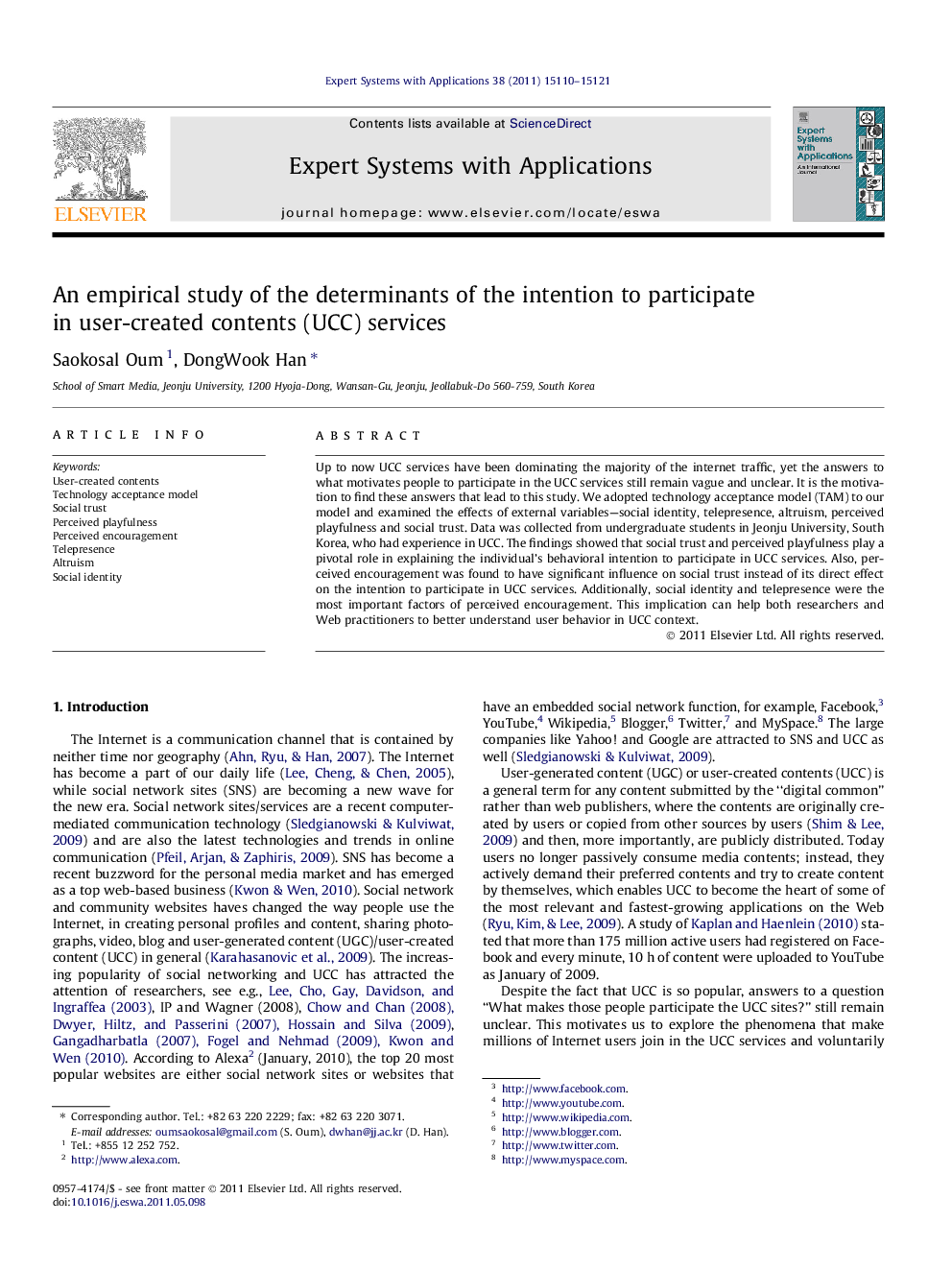| Article ID | Journal | Published Year | Pages | File Type |
|---|---|---|---|---|
| 385137 | Expert Systems with Applications | 2011 | 12 Pages |
Up to now UCC services have been dominating the majority of the internet traffic, yet the answers to what motivates people to participate in the UCC services still remain vague and unclear. It is the motivation to find these answers that lead to this study. We adopted technology acceptance model (TAM) to our model and examined the effects of external variables—social identity, telepresence, altruism, perceived playfulness and social trust. Data was collected from undergraduate students in Jeonju University, South Korea, who had experience in UCC. The findings showed that social trust and perceived playfulness play a pivotal role in explaining the individual’s behavioral intention to participate in UCC services. Also, perceived encouragement was found to have significant influence on social trust instead of its direct effect on the intention to participate in UCC services. Additionally, social identity and telepresence were the most important factors of perceived encouragement. This implication can help both researchers and Web practitioners to better understand user behavior in UCC context.
► We model user acceptance behavior in UCC. ► Social trust and perceived playfulness have impact on intention to participate in UCC. ► Perceived encouragement have influence on social trust. ► Social identity and telepresence are factors that affect perceived encouragement.
